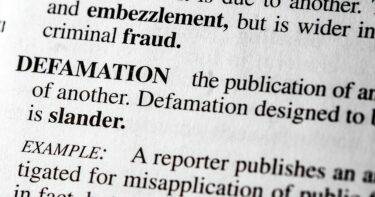
22
Nov 2023
Exclusion clause is held to be enforceable
In the recent case of Pinewood Technologies Asia Pacific Ltd v Pinewood Technologies PLC [2023] EWHC 2506 (TCC) the High Court held that an exclusion clause in an agreement between the parties did not amount to written standard terms of business and therefore was not subject to the reasonableness test under Unfair Contract Terms Act 1977 (UCTA).
Pinewood Technologies Asia Pacific Ltd (‘Claimant’) and Pinewood Technologies PLC (‘Defendant’) entered into two reseller agreements in July 2017 and January 2019. The Claimant contended that the Defendant had breached a number of its obligations under the reseller agreements and was subsequently entitled to damages. The Defendant attempted to rely on the exclusion provisions contained within the agreements which limited the Defendant’s liability for breach of contract for situations such as loss of profit.
The Claimant argued that the agreements formed part of the Defendant’s written standard terms of business (under section 3(1) UCTA) and therefore the exclusion clause contained within the agreement did not satisfy the reasonableness test set out in Section 11 UCTA. The effect of this is that the exclusion clause would be void.
The judge presiding over the case held that it was apparent that negotiations had taken place between the parties as there were various email exchanges, and calls regarding the reseller contracts and both parties had access to legal representation to obtain advice on the contracts and the terms.
The agreement was drafted and amended between the parties at various times, therefore making it very difficult for the Claimant to argue that the terms were not negotiated and standard business terms of the Defendant. The fact that the exclusion clause was not amended was not material in establishing that the contract had been negotiated.
As it was held that the exclusion clause was enforceable, the next step was to satisfy that the loss the Claimant was seeking to recover was precluded under the exclusion clause. The Claimant attempted to recover damages for loss of profit and wasted expenditure which therefore fell within the remit of the exclusion clause. As the language was clear and unambiguous the court was satisfied that the losses the Claimant was attempting to recover were prevented under the exclusion clause.
From this case, the court’s approach to exclusion clauses is clear. It would therefore be recommended that commercial contracts, such as the one in this case, are reviewed to ensure sufficient legal protection for your business. For assistance with the review of commercial contracts, contact us at newenquires-coco@chadlaw.co.uk.
- Like this ? Share with friends





